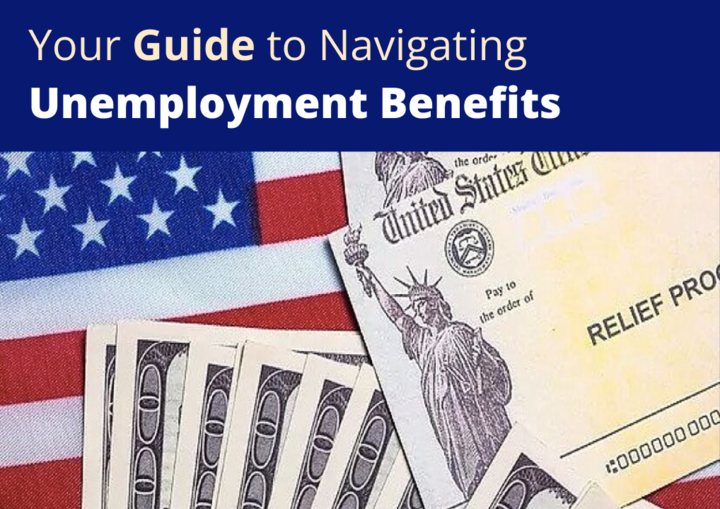The interplay between health and life insurance premiums is a fundamental aspect of the insurance industry. Life insurance companies assess the risk associated with insuring an individual, and health is a significant factor in this evaluation. When an individual applies for life insurance, insurers typically require a comprehensive medical history, which includes current health status, past illnesses, and lifestyle choices.
This information helps insurers determine the likelihood of a policyholder filing a claim during the policy term. Consequently, healthier individuals often enjoy lower premiums, while those with health issues may face higher costs or even denial of coverage. Moreover, the underwriting process plays a crucial role in establishing premiums.
Insurers utilize various tools, including medical exams, questionnaires, and sometimes even genetic testing, to gauge an applicant’s health risk. For instance, a person with a clean bill of health and no significant medical history may qualify for a preferred rate, which is substantially lower than standard rates. Conversely, someone with chronic conditions such as diabetes or heart disease may be categorized as a higher risk, leading to elevated premiums.
This relationship underscores the importance of maintaining good health not only for personal well-being but also for financial considerations related to life insurance.
Key Takeaways
- Health and life insurance premiums are closely related, with healthier individuals typically paying lower premiums.
- Pre-existing conditions can significantly impact life insurance premiums, often resulting in higher costs or even denial of coverage.
- Lifestyle choices, such as smoking and excessive drinking, can lead to higher life insurance premiums due to increased health risks.
- Family medical history can play a role in determining life insurance premiums, as certain genetic factors may increase the risk of developing certain health conditions.
- Improving your health through regular exercise, a balanced diet, and avoiding risky behaviors can help lower life insurance premiums.
The Impact of Pre-existing Conditions on Life Insurance Premiums
Pre-existing conditions are medical issues that exist before an individual applies for life insurance. These conditions can significantly influence the cost of premiums and the availability of coverage. Insurers often view pre-existing conditions as indicators of potential future health complications, which can lead to increased risk for the insurer.
For example, individuals with conditions like asthma, cancer, or autoimmune diseases may find themselves facing higher premiums or even exclusions from certain types of coverage. In some cases, insurers may impose waiting periods before coverage for specific conditions becomes effective. The degree to which pre-existing conditions affect premiums can vary widely among insurance providers.
Some companies specialize in high-risk individuals and may offer more favorable terms than others. Additionally, advancements in medical treatments and management strategies for chronic conditions can sometimes mitigate the impact on premiums. For instance, a well-managed diabetic patient who demonstrates stable blood sugar levels and adheres to treatment protocols may receive more favorable rates than someone whose condition is poorly controlled.
Thus, understanding how pre-existing conditions are viewed by different insurers can empower individuals to make informed decisions when seeking life insurance.
How Lifestyle Choices Affect Life Insurance Premiums
Lifestyle choices play a pivotal role in determining life insurance premiums. Insurers evaluate various factors related to an applicant’s lifestyle, including smoking habits, alcohol consumption, diet, exercise routines, and even hobbies. For instance, smokers typically face significantly higher premiums compared to non-smokers due to the well-documented health risks associated with tobacco use.
The increased likelihood of developing serious health issues such as lung cancer or heart disease translates into higher costs for insurers, which they pass on to policyholders. In addition to smoking, other lifestyle choices can also impact premiums. Individuals who engage in regular physical activity and maintain a balanced diet are often rewarded with lower rates.
Insurers may ask applicants about their exercise habits and dietary preferences during the underwriting process. Furthermore, high-risk hobbies such as skydiving or rock climbing can lead to increased premiums due to the elevated risk of injury or death associated with these activities. By making healthier lifestyle choices, individuals not only enhance their overall well-being but also position themselves favorably in the eyes of insurers.
The Role of Family Medical History in Determining Life Insurance Premiums
Family medical history is another critical factor that insurers consider when assessing life insurance applications. A family history of certain diseases can indicate a genetic predisposition to similar health issues in the applicant. For example, if an applicant has close relatives who suffered from heart disease or cancer at a young age, insurers may view this as a red flag and adjust premiums accordingly.
This practice stems from statistical data that suggests hereditary factors can significantly influence an individual’s health outcomes. Insurers often request detailed information about an applicant’s family medical history during the underwriting process. This includes information about parents, siblings, and sometimes even grandparents.
The presence of hereditary conditions such as diabetes, hypertension, or certain types of cancer can lead to higher premiums or more stringent underwriting requirements. However, it is essential to note that not all family histories are treated equally; some insurers may weigh certain conditions more heavily than others based on their own actuarial data. Therefore, understanding how family medical history impacts life insurance premiums can help applicants navigate their options more effectively.
Tips for Improving Your Health to Lower Life Insurance Premiums
Improving one’s health can be a strategic approach to securing lower life insurance premiums. One of the most effective ways to enhance health is through regular physical activity. Engaging in consistent exercise not only helps maintain a healthy weight but also reduces the risk of chronic diseases such as diabetes and heart disease.
Insurers often reward applicants who demonstrate an active lifestyle with lower premiums, as they are statistically less likely to file claims.
In addition to physical activity, adopting a balanced diet rich in fruits, vegetables, whole grains, and lean proteins can significantly impact overall health.
Reducing processed foods and sugars can lead to better weight management and lower cholesterol levels, both of which are favorable factors during the underwriting process.
Furthermore, quitting smoking and moderating alcohol consumption are crucial steps toward improving health metrics that insurers consider when calculating premiums. By making these lifestyle changes and demonstrating commitment to health improvement over time, individuals can potentially lower their life insurance costs.
The Importance of Regular Health Check-ups for Life Insurance Premiums
Regular health check-ups serve as a proactive measure not only for personal health but also for securing favorable life insurance premiums. Routine visits to healthcare providers allow individuals to monitor their health status and catch potential issues early on. Insurers often look favorably upon applicants who have a history of regular check-ups and screenings because it indicates a commitment to maintaining good health.
During these check-ups, healthcare professionals can provide valuable insights into risk factors that may affect life insurance premiums. For instance, routine blood tests can reveal cholesterol levels or blood sugar readings that might necessitate lifestyle changes before applying for coverage. Additionally, having documented evidence of good health from recent check-ups can strengthen an applicant’s case during the underwriting process.
Insurers may be more inclined to offer lower premiums if they see consistent evidence of proactive health management.
How Mental Health and Well-being Can Influence Life Insurance Premiums
Mental health is an increasingly recognized factor in determining life insurance premiums. Insurers are beginning to understand that mental well-being is closely linked to physical health outcomes. Conditions such as depression or anxiety can lead to increased mortality rates if left untreated, prompting insurers to consider these factors during the underwriting process.
Individuals with documented mental health issues may face higher premiums or additional scrutiny when applying for coverage. However, it is essential to note that mental health treatment can positively influence premium rates over time. Individuals who actively seek therapy or counseling and demonstrate improvement in their mental well-being may find that their efforts are recognized by insurers during policy renewals or new applications.
Moreover, some insurers have begun offering policies specifically designed for individuals with mental health conditions, reflecting a growing awareness of the importance of mental well-being in overall health assessments.
Discussing Health Concerns with Your Insurance Provider
Open communication with insurance providers regarding health concerns is vital for obtaining appropriate coverage at reasonable rates. When applying for life insurance, it is crucial to be transparent about any existing medical conditions or lifestyle choices that could impact premiums. Failing to disclose relevant information can lead to complications down the line, including denial of claims or cancellation of policies.
Engaging in discussions with insurance agents about specific health concerns allows applicants to gain insights into how these factors may influence their premiums. Agents can provide guidance on which aspects of an applicant’s health history are most relevant and how they might be addressed before applying for coverage. Additionally, understanding the nuances of different policies and how they accommodate various health situations can empower individuals to make informed decisions about their life insurance needs.
By fostering an open dialogue with insurance providers, applicants can navigate the complexities of life insurance more effectively while ensuring they secure coverage that aligns with their health status and financial goals.
Life Insurace Powered By eFinancial
FAQs
What factors of my health affect life insurance premiums?
Factors of your health that can affect life insurance premiums include your age, weight, height, medical history, current health conditions, and lifestyle choices such as smoking or excessive alcohol consumption.
How does my age affect life insurance premiums?
Younger individuals typically pay lower life insurance premiums because they are considered lower risk. As you age, the risk of developing health issues increases, leading to higher premiums.
How does my weight and height affect life insurance premiums?
Being overweight or underweight can impact your life insurance premiums as it may increase the risk of developing health issues such as heart disease, diabetes, and other conditions.
How does my medical history affect life insurance premiums?
A history of serious illnesses or chronic conditions such as cancer, heart disease, diabetes, or mental health disorders can lead to higher life insurance premiums as they indicate a higher risk of future health issues.
How do current health conditions affect life insurance premiums?
Pre-existing health conditions such as high blood pressure, high cholesterol, or asthma can impact life insurance premiums as they may increase the risk of future health complications.
How do lifestyle choices affect life insurance premiums?
Lifestyle choices such as smoking, excessive alcohol consumption, and participation in high-risk activities can lead to higher life insurance premiums as they increase the risk of developing health issues.
Can improving my health lead to lower life insurance premiums?
Yes, making positive changes to improve your health, such as quitting smoking, losing weight, or managing chronic conditions, can lead to lower life insurance premiums as it reduces the risk of future health issues.







